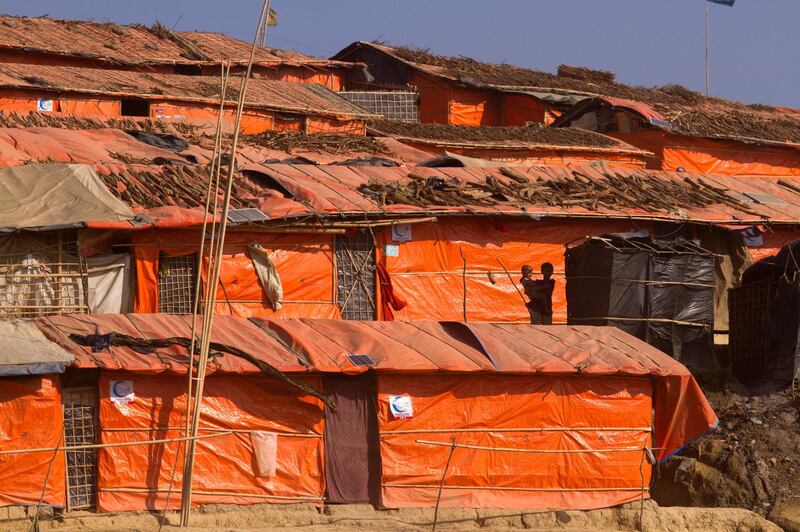Britain's Middle East Minister, Alastair Burt, told a conference in Saudi Arabia on Monday there was a pressing need for global reform of the humanitarian system. He called on the international community to ensure aid was delivered to the 100 million people currently affected by crises, a figure that has doubled since 2008.
Mr Burt claimed that without more concerted action, by 2030 more than half of the world’s poor population could find themselves living in conflict zones.
“Whilst the number of conflicts is in decline, those that persist are becoming more complex, harder to resolve and lasting significantly longer,” Mr Burt told the Riyadh International Humanitarian Forum. “From Syria to South Sudan, merciless conflicts rage on and over the last few years, we have seen that people who are forced to flee their home countries become refugees for over ten years on average.
"The UK's focus is on bigger, better and faster humanitarian responses. We are already improving preparedness ... including investing in financial programmes such as disaster risk insurance schemes that help provide cheaper, faster and reliable finance when crises hit.
"But this is not enough, and international co-ordination is vital if we are to continue getting aid to those most in need together with an urgent examination of the failure of current intended processes to prevent, or bring to a conclusion, the conflicts doing so much damage," Mr Burt told the forum, which is hosted by King Salman and has gathered representatives from humanitarian groups from across the Middle East and beyond.
“Alongside this we must all take a longer-term approach to protracted crises, including supporting those countries and communities which host significant numbers of refugees who have fled relentless violence. This will help foster stability and security, which is firmly in all our interests.”
Meanwhile on Monday, Mr Burt’s colleague Boris Johnson, the British Foreign Secretary, addressed the gravity of the crisis in Syria. Responding to an urgent question in Parliament, he accused the “Assad regime – aided and abetted by Russia and Iran – [of inflicting] the overwhelming burden of [the] suffering” in Syria’s bloody civil war.
Mr Johnson noted the recent escalation of violence around easterm Ghouta, saying that “hundreds of civilians have been killed … in the last week alone and the House will have noted the disturbing reports of the use of chlorine gas. I call for these reports to be fully investigated and for anyone held responsible for using chemical weapons in Syria to be held accountable.”
The foreign secretary said that “over the weekend I discussed the situation with my Turkish counterpart, Mevlut Cavusoglu, and Saad Hariri, the Prime Minister of Lebanon. Earlier today, I spoke to Sigmar Gabriel, the German foreign minister, and I shall be speaking to other European counterparts and the UN Secretary General in the coming days.
“Britain has joined with our allies to mobilise the Security Council to demand a ceasefire across the whole of Syria and the immediate delivery of emergency aid to all in need,” Mr Johnson said.
“Today, only the Assad regime stands in the way of progress. And so, I urge Russia to use all its influence to bring [them] to the negotiating table and take the steps towards peace that Syria’s people so desperately need.”






